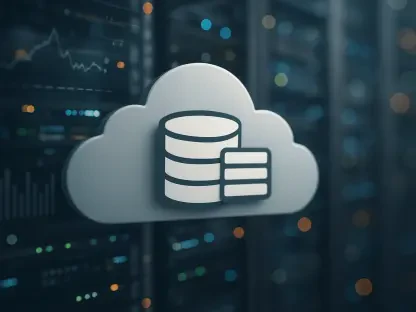The relationship between Amazon Web Services (AWS) and the NSO Group, known for its controversial Pegasus spyware, has been a focal point of significant scrutiny and legal challenges. This connection, which traces back to December 2018, surfaced publicly through a subpoena obtained by WhatsApp. They alleged that NSO Group utilized Pegasus to conduct surveillance on approximately 1,400 individuals, including journalists, activists, dissidents, and government officials. This revelation not only cast a shadow on NSO Group but also questioned AWS’s role in providing the infrastructure that supported such activities. Following Amnesty International’s findings, AWS terminated its services to NSO Group in May 2021, even though the servers remained inactive from January of the same year.
The Timeline of AWS and NSO Group’s Relationship
Early Association and Initial Usage
The partnership between AWS and NSO Group began in December 2018, but it only came to light through the legal efforts led by WhatsApp. In 2019, WhatsApp filed a lawsuit against NSO Group, leveraging evidence gleaned from a subpoena. This document highlighted how NSO Group used AWS infrastructure to store components of Pegasus software. At the time, Pegasus spyware was allegedly employed to monitor around 1,400 individuals from diverse backgrounds, sparking a global conversation about the ethics and dangers of such surveillance tools. The clients targeted by Pegasus included high-profile individuals such as journalists, human rights activists, dissidents, and government officials.While AWS’s swift action to terminate its services to NSO Group in May 2021 demonstrated the company’s commitment to ethical practices, questions lingered about the transparency and verification processes of cloud service providers. AWS clarified that the decision to cut off NSO’s access came after being alerted by Amnesty International regarding the misuse of their infrastructure in questionable surveillance activities. Meanwhile, NSO Group contended in court filings that from January 2021 onwards, their AWS servers were merely inactive and contained no data, merely supporting internal IT networks until December of the same year. This period of inactivity suggested a preemptive attempt by NSO Group to distance themselves from the operational use of AWS.
Revelations and Legal Challenges
WhatsApp’s legal battle against NSO Group significantly amplified the spotlight on Pegasus, fueling legal and ethical discourse around its use. The court findings revealed that NSO Group’s activities were far-reaching, prompting heightened scrutiny from various government bodies. By 2021, the U.S. government had placed NSO Group on its entities list, effectively tightening regulations and licensing requirements around the company. This move by the government underscored the severity of the allegations and the corresponding need for strict oversight on spyware developers.Notably, the lack of initial attention from policymakers towards Pegasus is a critical theme, hinting at the reasons behind the delayed governmental intervention. Experts believe that AWS might have been unaware of hosting parts of Pegasus’s code due to NSO Group potentially leasing the cloud services under a different corporate identity. This brings to light the essential nature of stringent verification processes for cloud service users to prevent misuse. The impending court disclosures from NSO Group are anticipated to provide a comprehensive view of the spyware’s functionalities, including instances of NSO spyware targeting WhatsApp servers, aligning with the broader trend towards enhanced accountability and transparency in cybersecurity practices.
Implications for Cloud Services and Cybersecurity
Increasing Accountability and Transparency
The unfolding events surrounding AWS and NSO Group are illustrative of the evolving landscape of cybersecurity and digital privacy. The court-mandated disclosures from NSO Group are set to unveil detailed documents outlining the full capabilities of Pegasus and its operations, extending to targeting specific servers. This impending transparency aligns with the escalating demand for accountability in cybersecurity. Legal actions propelled by organizations like WhatsApp, coupled with endorsements from human rights groups, are catalyzing a shift toward more transparent cybersecurity practices.This trend is pivotal as it enforces a rigorous ethical framework within the tech industry, compelling cloud service providers to adopt more stringent vetting processes. While AWS’s reaction to terminate services to NSO Group was crucial, it also highlighted the gaps in current verification mechanisms that allowed Pegasus to operate via their infrastructure initially. Moving forward, the tech industry may witness more robust policies being implemented to curb any misuse of cloud services, ensuring that companies adequately vet their clients to avoid inadvertently supporting unethical practices.
The Role of Corporate Responsibility
The relationship between Amazon Web Services (AWS) and the NSO Group, infamous for its Pegasus spyware, has been under intense scrutiny and faced legal challenges. This connection, first highlighted in December 2018, became widely known through a subpoena obtained by WhatsApp. WhatsApp alleged that NSO Group used Pegasus to spy on around 1,400 individuals, including journalists, activists, dissidents, and government officials. This disclosure not only brought NSO Group under the spotlight but also raised questions about AWS’s involvement in offering the infrastructure that facilitated such surveillance activities. Following an investigation by Amnesty International, AWS ended its services to the NSO Group in May 2021. This termination came despite the fact that the associated servers had been inactive since January of that same year. The fallout from this affiliation has led to significant debate about the ethical responsibilities of technology providers in supporting controversial operations.









